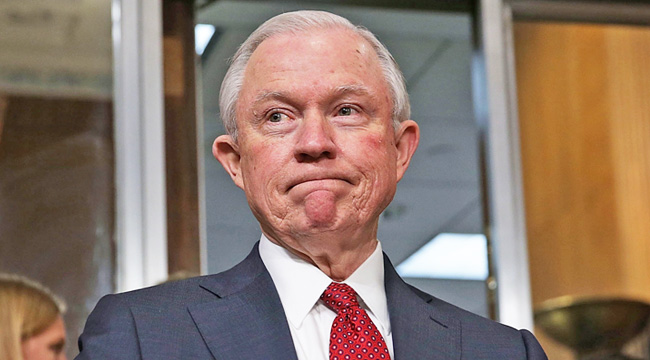
Throughout his Senate testimony earlier this week, Attorney General Jeff Sessions was alternately combative and unhelpful, answering time and time again that he could not recall when asked about interactions with Russian-connected parties during the campaign. Unfortunately for Sessions, some people do remember whether he interacted with people connected to Russian interests during the campaign.
According to The Guardian, Richard Burt, “a former ambassador to Germany during the Reagan administration, who has represented Russian interests in Washington” attended, along with other Republican foreign policy officials, two dinners hosted by Sessions during the campaign. Burt also helped write a foreign policy speech for Trump during the campaign.
Asked whether Sessions was unfamiliar with Burt’s role as a lobbyist for Russian interests – a fact that is disclosed in public records – or had any reason to be confused about the issue, Burt told the Guardian that he did not know.
Several media reports published before Trump’s election in November noted that Burt advised then candidate Trump on his first major foreign policy speech, a role that brought him into contact with Sessions personally.
Burt most recently had worked as a lobbyist for a pipeline company now owned by Gazprom, the Russian state-owned energy conglomerate. According to Burt, Sessions invited him to the dinners in order to discuss national security and foreign policy issues.
The speech in question that Burt helped on was given by President Trump on April 27, 2016 at the Mayflower Hotel and was attended by Russian ambassador Sergey Kislyak, the same ambassador who Sessions had undisclosed meetings with during the campaign. In that speech Trump said an “easing of tensions and improved relations with Russia – from a position of strength – is possible” and that “common sense says this cycle of hostility must end.”
On an unrelated note, there is a federal statute for perjury.
(via The Guardian)
